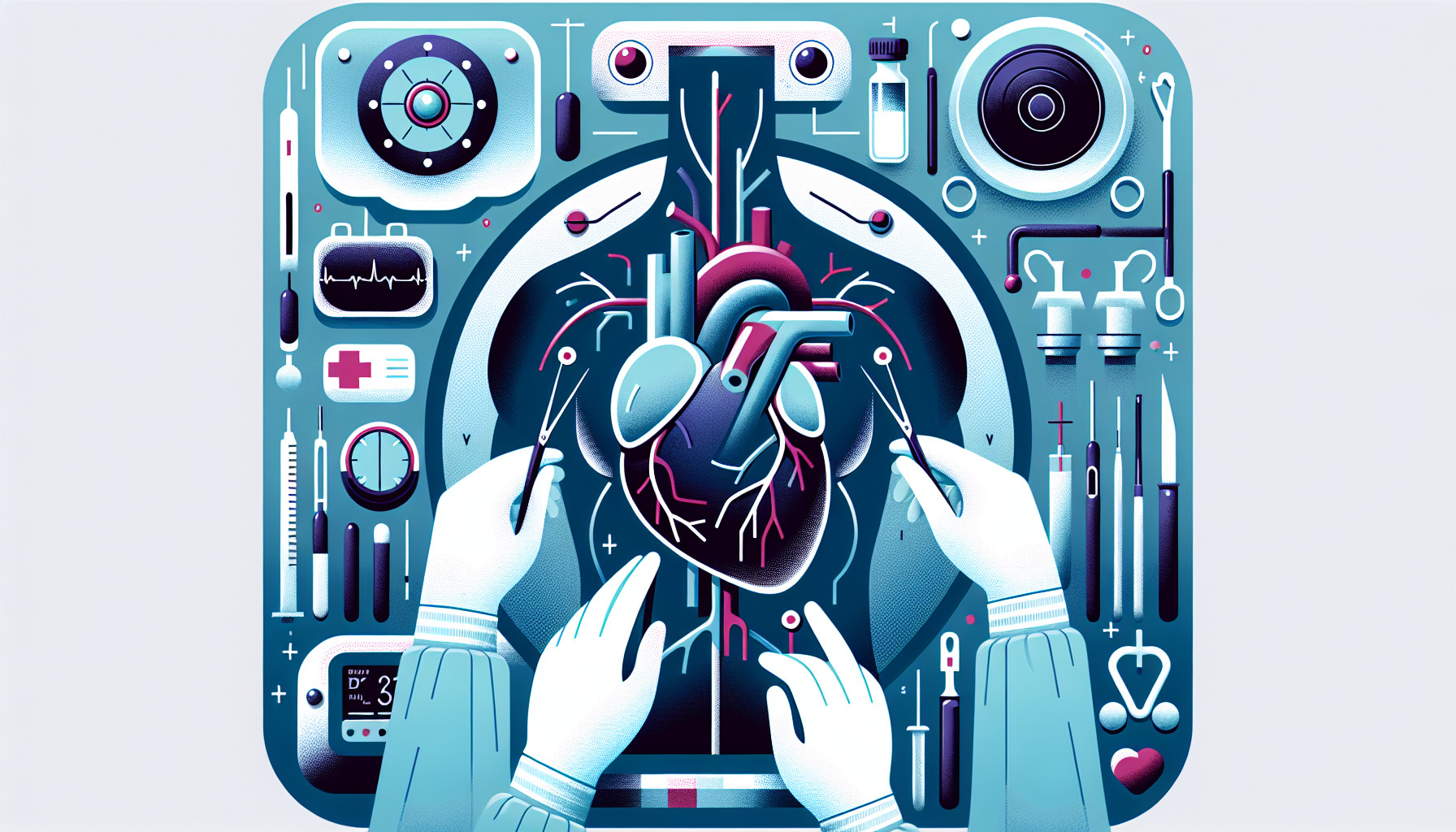Our Summary
This paper reviews the complications that can occur after coronary artery bypass graft surgery (CABG). This is a major heart operation, and even with recent advances, there is still a risk of problems happening afterwards. Every year in the U.S., over 200,000 people have this surgery, and up to 14% of them end up back in the emergency department within a month because of complications.
These complications can be due to a variety of factors, including the patient’s health before the surgery, the skill and experience of the surgeon, and problems that can happen after the operation. These can include infections, pneumonia, blood clots, failure of the graft, heart rhythm problems, high blood pressure in the lungs, fluid around the heart, strokes, kidney damage, and stomach or bowel problems.
The paper emphasizes the need for emergency doctors to be able to quickly diagnose and manage these complications. It also stresses the importance of consulting with the surgical team that performed the operation, as this can improve the patient’s outcome. The paper provides guidelines for managing these complications, particularly focusing on maintaining the patient’s heart function.
In conclusion, it’s important to remember that complications after heart bypass surgery can be serious and potentially life-threatening. They need to be quickly identified and treated, and the surgical team should be involved in this process.
FAQs
- What complications can occur after coronary artery bypass graft surgery (CABG)?
- What factors can contribute to complications after a CABG?
- What measures are recommended in the paper to manage complications after a CABG?
Doctor’s Tip
A helpful tip that a doctor might tell a patient about coronary artery bypass is to monitor for any signs of complications, such as chest pain, shortness of breath, swelling, fever, or changes in heart rate. It is important to follow up with your healthcare provider regularly and report any new or worsening symptoms. Additionally, it is important to follow a healthy lifestyle, including eating a balanced diet, exercising regularly, and quitting smoking, to reduce the risk of complications and improve overall heart health.
Suitable For
Patients who are typically recommended for coronary artery bypass surgery are those with severe coronary artery disease, which is causing significant blockages in the blood vessels supplying the heart muscle. This can lead to symptoms such as chest pain, shortness of breath, and fatigue. Patients who have not responded well to medications or other treatments, such as angioplasty, may be recommended for CABG. Additionally, patients with multiple blockages in their coronary arteries or those at high risk for a heart attack may also be candidates for this surgery. It is important for patients to discuss their individual situation with their healthcare provider to determine if CABG is the best treatment option for them.
Timeline
Before coronary artery bypass surgery, a patient typically undergoes various tests and evaluations to determine the extent of blockages in their coronary arteries and the overall condition of their heart. This may include a stress test, echocardiogram, and angiogram.
After the surgery, the patient will be closely monitored in the intensive care unit (ICU) for a few days to ensure their heart is functioning properly and there are no immediate complications. They will then be moved to a regular hospital room for further recovery.
In the weeks following surgery, the patient will need to attend follow-up appointments with their healthcare provider to monitor their progress and make any necessary adjustments to their medications or treatment plan. Cardiac rehabilitation may also be recommended to help the patient regain strength and improve their overall cardiovascular health.
Overall, the recovery process after coronary artery bypass surgery can be challenging, but with proper care and support, most patients are able to resume their normal activities and lead a healthy lifestyle.
What to Ask Your Doctor
Some questions a patient should ask their doctor about coronary artery bypass surgery include:
- What are the potential complications that can occur after the surgery?
- How likely am I to experience complications based on my medical history and current health?
- What steps can be taken to prevent or minimize the risk of complications?
- How will the surgical team monitor me for complications after the surgery?
- What symptoms should I watch out for that may indicate a complication?
- How quickly should I seek medical attention if I suspect a complication?
- What is the plan for managing complications if they arise?
- Will I require any additional treatments or medications to address potential complications?
- How often will I need follow-up appointments after the surgery to monitor for complications?
- Are there any lifestyle changes or precautions I should take to reduce the risk of complications post-surgery?
Reference
Authors: Montrief T, Koyfman A, Long B. Journal: Am J Emerg Med. 2018 Dec;36(12):2289-2297. doi: 10.1016/j.ajem.2018.09.014. Epub 2018 Sep 8. PMID: 30217621
